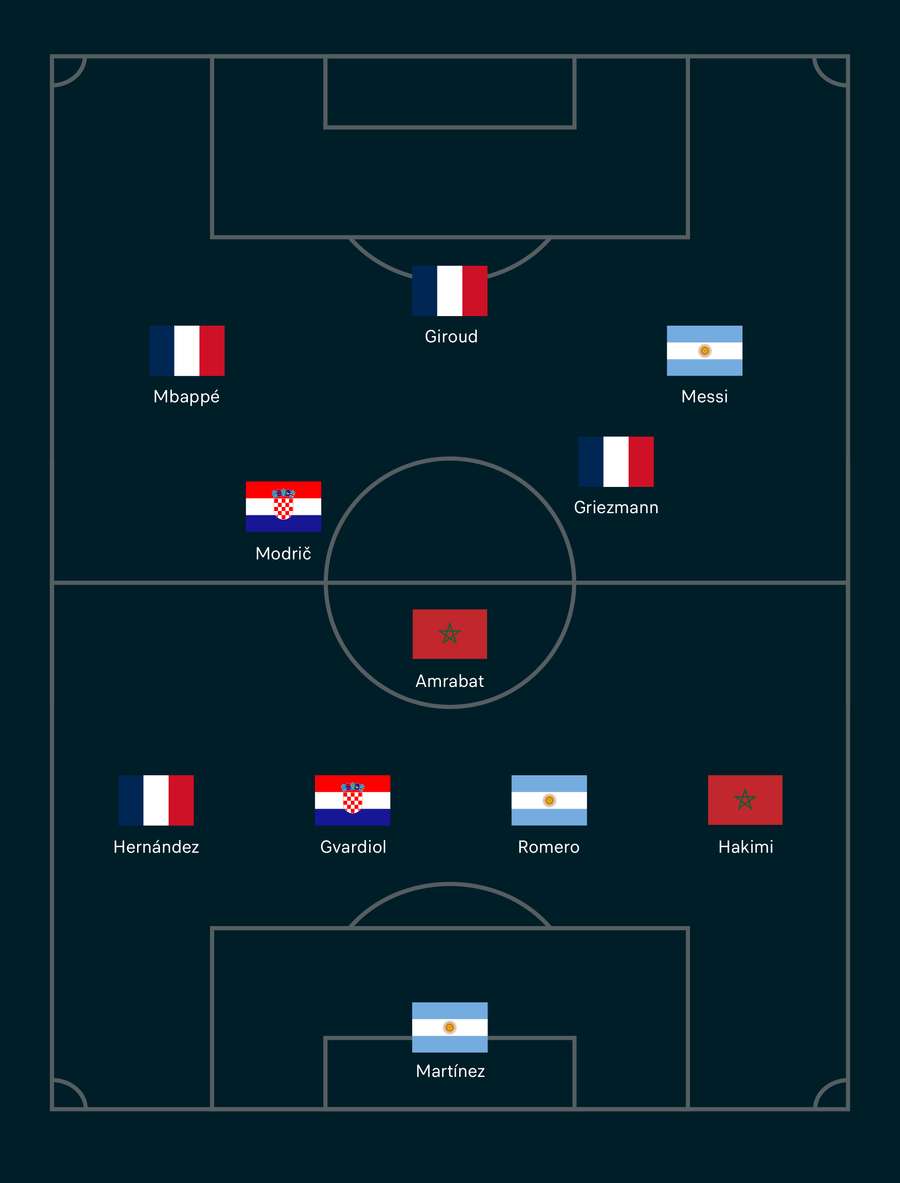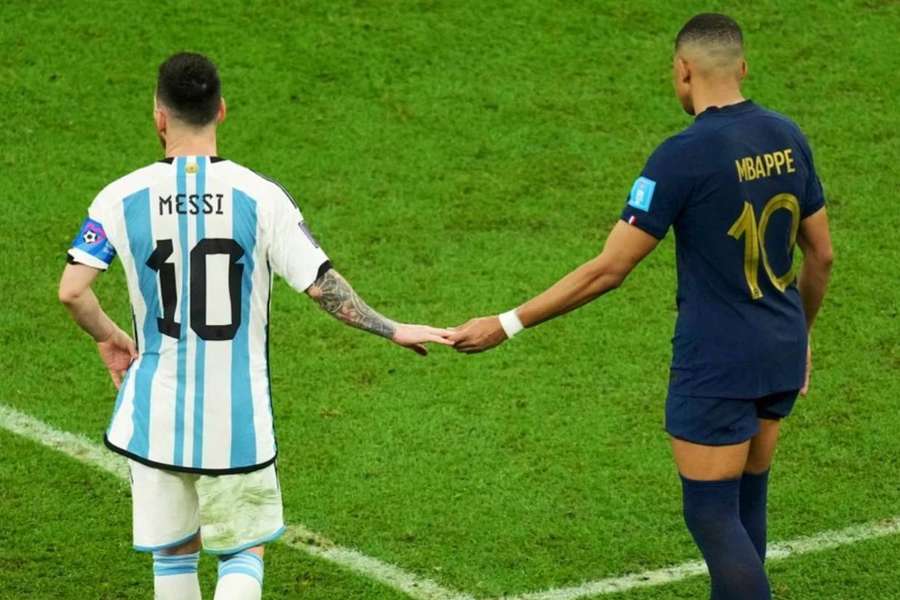Emiliano Martínez (Argentina)
Perhaps the most difficult position to evaluate, and to some extent, a choice that contradicts the data. In terms of quality of saves (counting without penalties), the best goalkeeper of the championship, mathematically speaking, was Dutchman Andries Noppert.
Depending on how well the shooters placed their attempts on goal, he prevented three shots during the tournament, clearly the best result among goalkeepers. Noppert dominated almost all the important attributes in his position, but did not support his performance in the penalty shootout. Thus, the attention was drawn to others...
The fact that Martínez conceded a low number of goals during the tournament was largely due to the fact that he was playing behind the best defence in the championships. When the Argentines did allow chances from play, he displayed nothing extraordinary and was even the seventh-worst goalkeeper of the championship in terms of quality of saves.
However, he helped his team to two important victories in penalty shootouts (he saved four out of nine attempts in the quarter-finals and the final) and should therefore probably not be missing from the starting XI. Moreover, it was he who gave Argentina the chance to win the final when he stopped Randal Kolo Muani's last second chance in the 123rd minute.
Theo Hernández (France)
On the left side of the French line-up, he and Kylian Mbappé put together a perfectly functioning offensive duo. Advanced data metrics showed that only Korea's Kim Jin-Su created more dangerous situations in the final third of the pitch than him with his passing.
Hernández, however, was the better player statistically. No other left back created such quality shooting opportunities with his runs, and the Frenchman was among the best in terms of percentage of successful crosses. In addition, he won his team a decent number of balls in important areas, so he certainly didn't fail as badly defensively as many seemed to think.
Joško Gvardiol (Croatia)
Together with goalkeeper Dominik Livakovic, he was the most prominent figure in an otherwise not very well-functioning Croatian defensive line. During every game, he had a huge number of duels on the ground, which he won with a high success rate and never once was reprimanded with a yellow card.
Only a handful of other centre backs have won more balls on average during a match than Gvardiol. In addition, he even rarely lost the ball in such attacking situations, and scored in the bronze medal match.
Cristian Romero (Argentina)
Argentina's defensive unit entered the final with an unprecedented 0.28 expected goals conceded per game. The two stoppers, who at times were impenetrable on the pitch, contributed significantly to this.
Just when it seemed that the Argentines were going to give their opponents a dangerous chance, it was Romero who pulled the emergency brakes. The data shows that there was no other defender in the tournament who won the ball back in such important positions as this Tottenham player.
Achraf Hakimi (Morocco)
No other right-back has created such dangerous chances in the final third of the pitch with his runs on the ball at the World Cup. And although he drew attention mainly with his attacking excursions, his fantastic defensive work must not be forgotten.
Hakimi won a large number of balls in dangerous situations, collected deflected balls, intercepted the opponent's passes and was a major contributor to Morocco's historic progress to the World Cup semi-finals. The performance of the Atlas Lions will be closely linked by the football public to the great defensive performance of Hakimi.
Sofyan Amrabat (Morocco)
In a data metric that evaluates how often a player stops opponents', dribbles and passes in dangerous areas, Amrabat was the second best defensive midfielder at the tournament behind the Brazilian Casemiro.
He didn't flinch from any duels, was dominant in them and was among a small group of players whose success rate in duels on the ground was around 70%. At the same time, Morocco also relied on his brilliant ability to bring the ball out from his own third of the pitch. Only Germany's Joshua Kimmich and Senegal's Nampalys Mendy were more active than him in the number of progressions up the pitch.
Luka Modric (Croatia)
England's Jude Bellingham, who at the age of 19 was one of the most outstanding players of the tournament, could have easily won a place in the this XI. However, he had the misfortune of having Modric, one of the main architects of Croatia's bronze medal success, in the same position as him.
What the Spaniards had in the duo of Pedri and Gavi, the Croats had in one "package". The former was matched by Modric's ability to find creative solutions in the middle of the pitch, while the latter by his ability to create in the final third and move the ball into better positions with his runs. In addition to being the creative brain of the team, he was also great defensively. One of the most complete performances of the tournament.
Antoine Griezmann (France)
Perhaps the most useful player for France, and certainly their main creative force. Griezmann moved slightly from the second striker position and filled the role of the injured Paul Pogba to perfection. No other central midfielder has created better opportunities for his team at the World Cup than him, according to the metric of expected assists.
Finally, his technical skills also translated into an advanced mathematical model evaluating a player's offensive contribution based on all touches of the ball in the final third of the field. In this area, Griezmann was the most creative in his position by a wide margin. Although he was actively attacking and winning a large number of balls for his team, he was also one of the most disciplined players in the tournament. On average, he committed only 0.45 fouls per game.
Kylian Mbappé (France)
Among the wide player, he had no competition at the tournament. He was in the most goalscoring positions, according to the expected goals metric, had the highest average number of shots per game (3.7) and once again proved what a great finisher he is.
Despite the high number of attempts on goal, he was able to maintain a high success rate. He converted 26% of them into goals, which is a fantastic result. Even the best wingers in the world struggle to get to 20% with such a high volume of shots. Sure, we're talking about a small sample of games, but Mbappé has shown that he can do this in the long run.
Olivier Giroud (France)
He entered the tournament with the daunting task of replacing the injured Karim Benzema, but he handled it very well. In Qatar, he fired 16 shots at the opposition goal, all but one of which came from inside the penalty area.
According to the expected goals metric, no other number nine has created more shooting opportunities and Giroud ranks alongside Lionel Messi in terms of shots. He also confirmed his reputation as one of the best strikers defensively in the world. Although he did not play well in the final match, who in the French squad can be said to have done the opposite in that first half?
Lionel Messi (Argentina)
Let's save the best for last. The data experts at 11Hacks can use their advanced mathematical models to track a player's offensive contribution based on a wide range of parameters. Analyse any part of the pitch, any player's action or any period of the match.
And when you combine all of this into one single metric to see who had the absolute biggest impact on their team's offensive play of all, Lionel Messi's name stands at the very top. Still the best player across all five elite leagues this season. It would be fair to say that everything has worked out exactly as it should...





